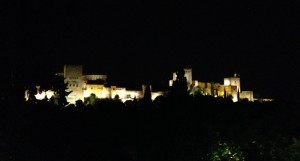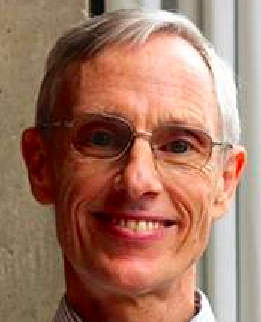Back in Granada
 Back in Granada on my way to Alicante, staying once again at university residence Carmen de la Victoria, I revisited the site of a 13-year-old diary entry, dated June 15, 2003:
Back in Granada on my way to Alicante, staying once again at university residence Carmen de la Victoria, I revisited the site of a 13-year-old diary entry, dated June 15, 2003:
A dusty pedestrian road by the Alhambra is lined with engraved quotations. My favorite on Saturday was by Thoreau, translated into Spanish. Here are my own English version constructed from memory as I continued my walk, followed by the English original which I later found on the web, and finally my revision.
My version:
All of our excursions end by finally coming back to where we started. Half the journey is returning home. Sometime we will learn to extend our little walks by desiring never to return. When you have said goodbye to your parents, your wife, your children, and your friends, never to see them again; when you have paid your debts, written your will, put all of your affairs in order, and are a free man; only then are you ready to take a walk.
The original, “Walking” by Henry David Thoreau
Our expeditions are but tours, and come round again at evening to
the old hearth-side from which we set out. Half the walk is but
retracing our steps. We should go forth on the shortest walk,
perchance, in the spirit of undying adventure, never to return–
prepared to send back our embalmed hearts only as relics to our
desolate kingdoms. If you are ready to leave father and mother,
and brother and sister, and wife and child and friends, and never
see them again–if you have paid your debts, and made your will,
and settled all your affairs, and are a free man–then you are
ready for a walk.
For more of this essay see http://tanaya.net/Books/wlkng10/, e.g.
“It requires a direct dispensation from Heaven to become a walker.
You must be born into the family of the Walkers. Ambulator
nascitur, non fit.”
or “what would become of us, if we walked only in a garden or a mall?”
Analysis. His first sentence is better, more specific. His second is weakened by exaggeration, since we rarely actually “retrace our steps.” My third sentence is a mistranslation, but much better from the start, and infinitely better in omitting the ridiculous embalmed hearts and desolate kingdoms. In the fourth sentence, my “when” is much better than his “if.” Here’s my revision:
All of our excursions end by finally coming back at evening to the old hearth-side from which we set out. Half the journey is returning home. Sometime we will learn to extend our little walks by desiring never to return. When you have said goodbye to your parents, your wife, your children, and your friends, never to see them again; when you have paid your debts, written your will, put all of your affairs in order, and are a free man; only then are you ready to take a walk.
 Welcome to my blog. I also have a blog at the
Welcome to my blog. I also have a blog at the
k.h.:
“There is nothing like returning to a place that remains unchanged to find the ways in which you yourself have altered.” – Nelson Mandela.
Do our walks ever really lead back to the same spot we started, or is it just a comforting mirage that we journey back toward? Does one need to say goodbye to be free to walk if one has never really returned before? Perhaps one can walk free simply when the mirage fades, when one appears in each moment reborn to their father, mother, brother, sister, wife, child, friends, and self.
Was very nice to meet you in Granada, thanks for sharing so many great stories and the lovely views at the Carmen!
24 September 2016, 6:20 am